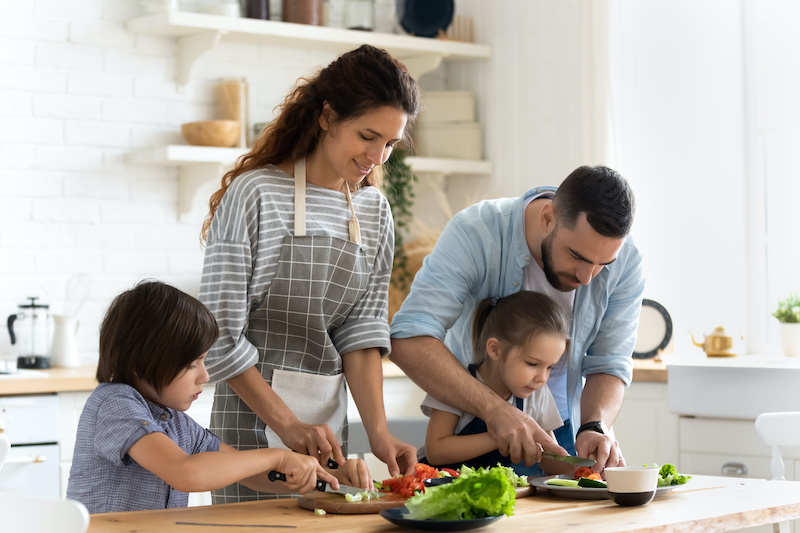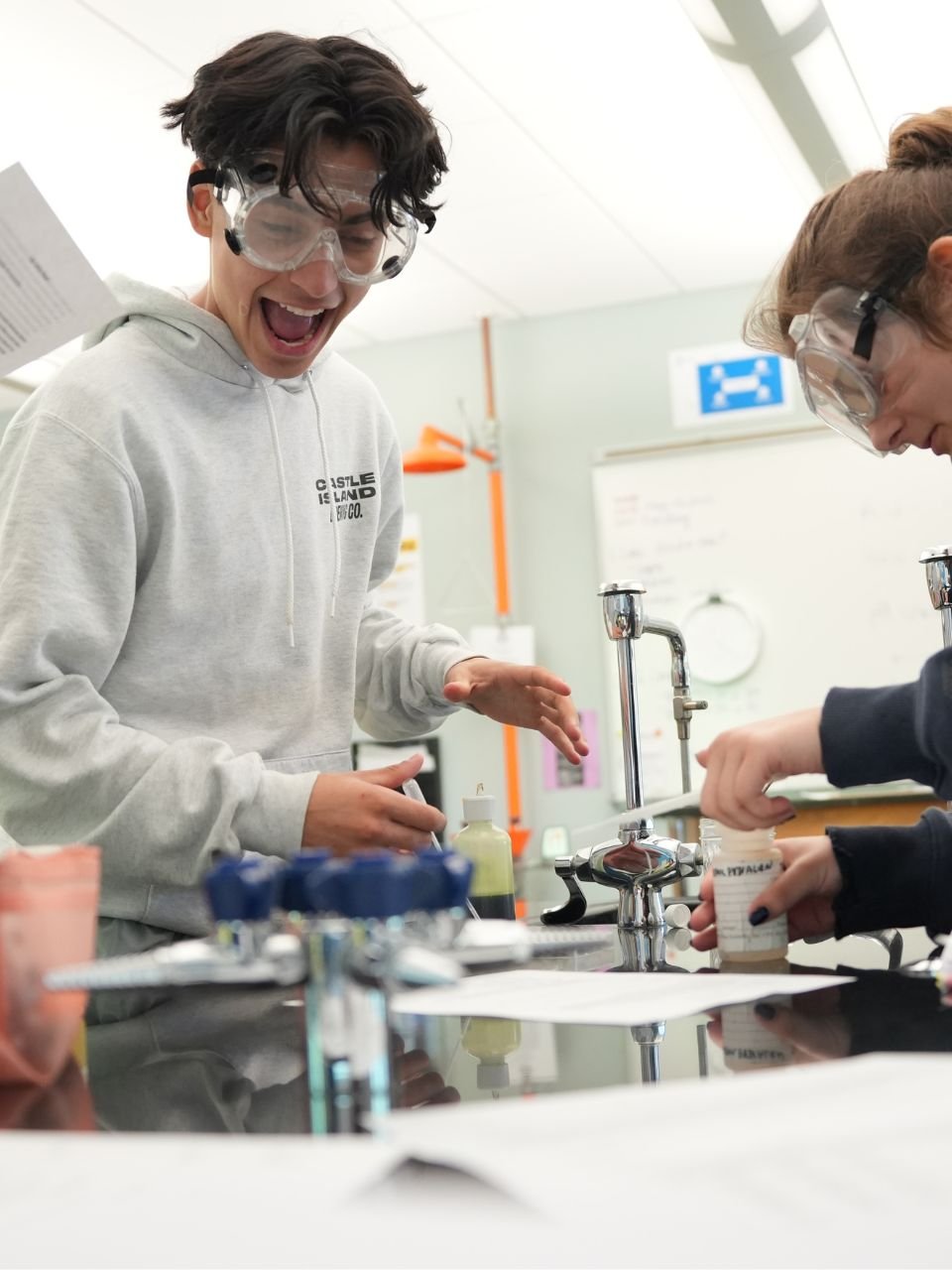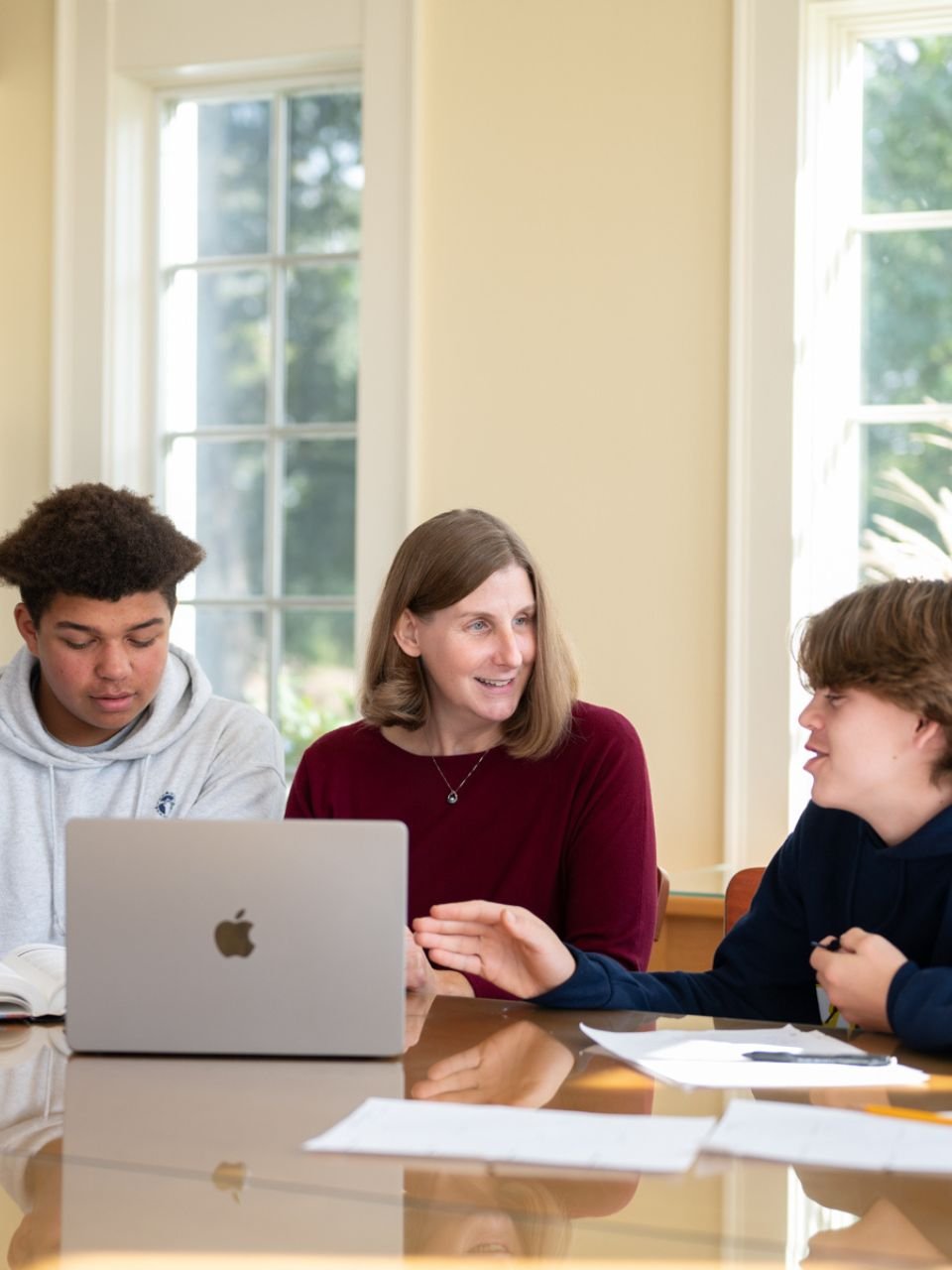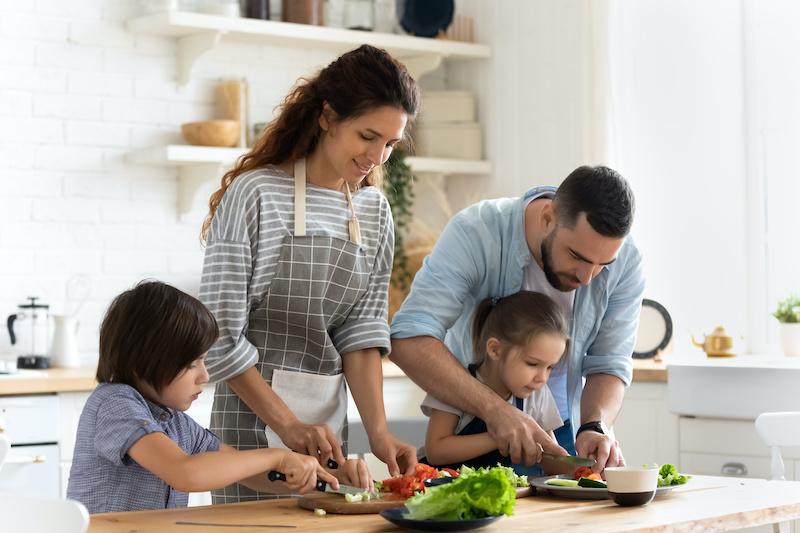- Our School
- Our Advantage
- Admission
- Elementary•Middle School
- High School
- Summer
- Giving
- Parent Resources
- For Educators
- Alumni
« Back
Parenting During a Pandemic
December 16th, 2020
By Elizabeth Englander, PhD

As if you didn’t have enough to worry about.
Parents today have more than enough on their plates. We’re coping both with keeping our families safe during an unprecedented (and frankly scary) epidemic, as well as dealing with a recession during which many have lost income, sometimes jobs, and perhaps even their homes. We can’t get a break by going to the movies, shopping, or out with friends. We’re trying to work at a kitchen table that’s often populated by our children (going to school online), our pets (barking in the background), and our spouses, who are trying to do their own work.
And the pandemic has introduced new worries, as well. It has mandated social isolation, both for adults and for children. Experts are aware that the pandemic’s social isolation may affect kids emotionally, at least in the short term. It's worrisome to consider how kids may have lost some of their social skills, and we know it's challenging for kids to keep up their friendships when they can only see their friends online. That introduces another big issue as well: how to handle screen time and social media use during this pandemic. What kind of rules about screen time should we enforce? Screens are the only way our kids can connect with each other, so perhaps we should permit more screen time. But we all know that too much screen time is not healthy for children, developmentally, cognitively or socially. Finally, there's the sheer fatigue of trying to parent through a pandemic. It's hard to keep up your own spirits while you're monitoring your child's.
Mitigation Strategies
But all is not lost. We’re going to have to revise our parenting game, but there are steps we can all take to minimize the damage done to our kids during this pandemic.
First, keep in mind that during normal times, your children have different opportunities to practice social skills (like school), but during COVID times, those opportunities are reduced. The result is that family interaction becomes more important. So to keep social skills sharp, have family meals that ban all phones and screens to practice conversational skills. Prepare topics in advance, like positive news stories. Try to find non-screen activities, such as cooking or yardwork, that also lend themselves to casual talks.
Second, you can also revisit your family’s screen-watching rules. This can be complicated, because kids often have to do school and other activities online, and especially as winter looms, they may have fewer non-screen resources. It also can be true that when you're living cheek and jowl with your kids, setting up new and restrictive rules that cause fights and conflict that can, in turn, cause everyone's mental health and emotional well-being to plummet. Consider setting daily schedules that allow kids to use screens while you’re working, and mandate daily non-screen activities, like cooking together, family meals, walks and play outside, and seeing friends in a socially-distance way.
Teach Responsibility and Independence
Importantly, I think it’s also past time for us as adults to encourage kids to be partners in looking after their own physical and mental health, rather than trying to simply impose rules on them that they don't understand or don't agree with. Take one example. Adults are often aware that there’s a relationship between the overuse of screens and social media and anxiety or depression in children. Kids, in contrast, may realize they have negative feelings, but may not understand that screens can contribute to these emotions. So taking time to describe negative feelings, to point out how screen use can contribute to them, and to encourage healthy habits, might be a better strategy than simply having arguments about social media or gaming.
These kinds of strategies can pay off in the long run, after the pandemic is in the rear-view mirror. Because understanding the importance of limiting screens reasonably and using them in a positive way can help kids begin to establish a lifetime of good habits.
Learn more strategies to encourage kids to use screens in a healthy way in the new children's book, The Insanely Awesome Pandemic Playbook: A Humorous Guide to Mental Health. Katharine Covino and I wrote this book expressly for this pandemic to help parents teach their kids coping skills in a funny and engaging book that kids will want to read.
Author

Dr. Elizabeth Englander is the founder and Executive Director of the Massachusetts Aggression Reduction Center at Bridgewater State University, which delivers programs, resources, and research to more than 400 schools every year nationwide. As a researcher and a professor of psychology for 25 years, she is a nationally recognized expert in the area of bullying and cyberbullying, childhood causes of aggression and abuse, and children’s use of technology. She is the author of Understanding Violence, a standard academic text in the field of child development and violent criminal behavior, and of Bullying and Cyberbullying: A Guide for Educators, published by Harvard Education Press, and The Insanely Awesome Pandemic Playbook: A Humorous Guide to Mental Health.
Posted in the category Social and Emotional Issues.






















